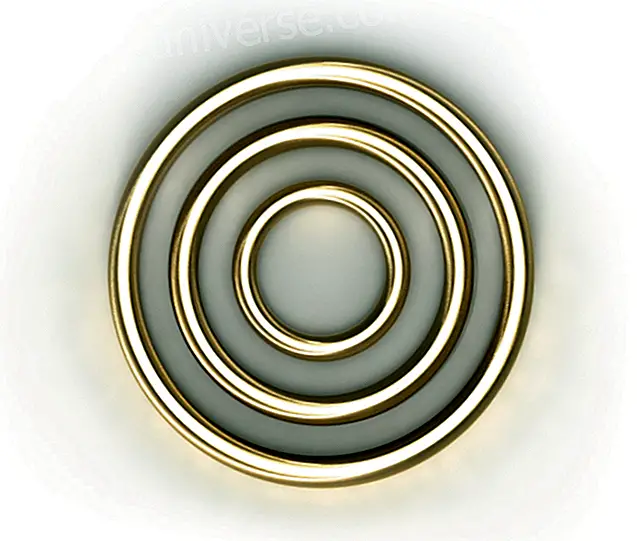Consciousness is a term that in the field of spirituality occupies a very prominent place, but is it correct to say Consciousness? Or should we say Consciousness ?, because we often make indiscriminate use of both words, but without knowing very well which of them is more accurate.
The truth is that both Consciousness and Consciousness come from the Latin consciousness, which means `` with knowledge '', with which, given that both terms share the same etymological origin, their meaning It would be the same: the knowledge that a being has of itself and its surroundings . This means that in most cases we could use either of the two words and we would not be making any mistakes. However, since at the conceptual level there are some differences that make these two words not always interchangeable, we must take into account the context in which we place ourselves and the meaning we want to give the sentence, before deciding by one of these two words.
In philosophy, for example, it is considered that Consciousness is the human faculty from which one decides to act in one way or another, depending on the conception of good and evil . Consciousness is thus, in this sense, a term closely linked to morality, which we use to refer to all kinds of philosophical, ethical or religious questions ; such as "having a bad conscience", "having charges of conscience" or "doing something conscientiously".
For psychology, on the other hand, Consciousness is a non-abstract or waking cognitive state, which allows a person to interpret and interact with reality. That is, by saying, in this sense, that a person "has no conscience", we are not referring to moral issues, but rather that the person is disconnected from reality, by the simple fact that he has stopped perceiving it .

That is, we can use both terms interchangeably to say, for example, that "someone regained consciousness after having suffered a serious accident", but it would not be appropriate to use the word "consciousness" to say "my conscience does not allow me steal ”, since here we would be making a clear allusion to moral aspects.
There is therefore a clear distinction between the ethical or moral context, in which Consciousness is not synonymous with Consciousness ; and the strictly scientific, who studies mental processes, where Consciousness, yes it is of Consciousness .
But psychology distinguishes, in addition, three different levels of Consciousness, which clarify a little better this differentiation between Consciousness and Consciousness. On a first level is Consciousness, which is the immediate knowledge that the person has of himself, of his acts, of his reflections and of his interaction with the environment; that is, the most awake and active part of consciousness.
On a second level is the Subconscious (or preconscious), which is where the whole cluster of experiences, emotions, memories, data, etc., is located, which the person retains in the background of his consciousness, but to which it is possible Access with some ease.
And on a third level is the Unconscious, which is where all those instincts, emotions, desires and conflicts are stored that, having not been rationalized, the person is not aware of the influence he exerts on his way of acting and relating to others.

According to Freud's theory, it is on this third level of consciousness that the human being places everything that he has repressed as unacceptable, but although without knowing it (without being aware of it), he inevitably conditions his behavior. Carl G. Jung, on the other hand, who incorporated at this third level the concept of “collective unconscious”, relates the individual unconscious of the human being with what he calls the “shadow ”.
The shadow is the sum of all facets of reality that the individual does not recognize in himself . That is, when a person says of himself that he is hardworking, tolerant, peaceful, respectful, sincere, honest, spiritual, etc., means that each of these characteristics was preceded by an election. He chose between two possibilities, chose one and discarded the other. Thus, with the "I am hardworking, tolerant and peaceful ", the " I am lazy, intolerant and violent " is automatically excluded.

By identifying with each of the pairs of opposites that make up our dual perception of reality, we gradually build our personality. There will therefore always be one of the two opposites that to a greater or lesser extent will be assumed as their own and integrated on the conscious level, and their opposite instead, considered as alien, will end up being banished to the shadow of our conscience (the unconscious).
In this way we can confer on the term Consciousness an attribution of holistic character, since it encompasses our entire Being; while the Consciousness would be reduced to the visible part of the Consciousness itself, which both describes our personality, as our partial perception of the Totality .
The Iceberg analogy

If we resembled a person's conscience to a gigantic iceberg, of which we know that only a small part of the totality protrudes above the water, the Conscious level would be the part of the iceberg that appears on the surface, the Subconscious would be the part that, despite being already submerged in water it is still possible to observe it from the outside; and the Unconscious would be that great mass of ice that remains hidden in the depths of the ocean.
This analogy with the iceberg allows us to understand that Consciousness is the totality of Being (including our divine origin and all our past lives), while Consciousness is the recognizable part of that totality . Thus the expression "make an awareness" is as much as saying that we have discovered a part of ourselves that was hidden in our Unconscious, but that at this precise moment has been transferred to the visible area of our Consciousness.
This is why, in a spiritual or metaphysical context, although it is not especially more meaningful to use a term than another, it is very common to use the word Consciousness, because it refers to this visible part of the being that is progressively widening to the extent that we are investigating within ourselves .

And according to the hermetic maxim “ as it is above, it is below and as it is below it is above ”, who has enough interest and determination to dive into the waters of his unconscious, will not only end up discovering what is hidden in the depths of his Being, but, by pure law of reciprocity, will end up embracing a Consciousness of Unity in which there is no separation between oneself and all beings of creation.
Here the famous aphorism of the temple of Delphi “ Know yourself ” takes on full meaning, since it is the only way to achieve the authentic Plenitude of Being .
www.comprendiendoalser.com
AUTHOR: Ricard Barrufet Santolària, editor in the big family of hermandadblanca.org






